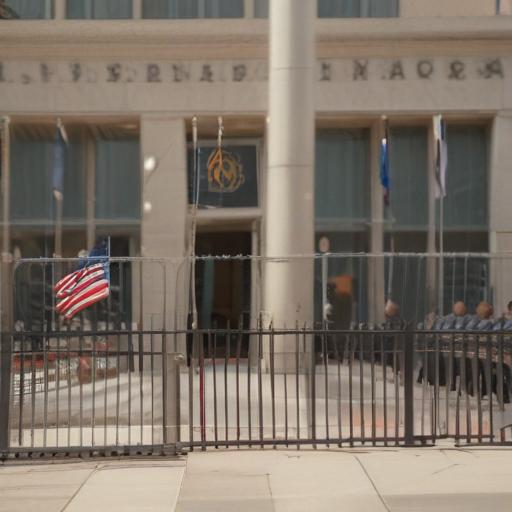The United States is reducing the number of nonessential personnel and their families at its diplomatic missions in the Middle East, namely the U.S. Embassy in Baghdad, amid rising regional tensions. This move, confirmed by the State Department and military officials on Wednesday, is part of ongoing reviews aimed at ensuring the safety of U.S. citizens abroad. Although the embassy had already been operating with limited staffing, this latest order is expected to impact only a small number of personnel.
Additionally, nonessential staff and family members in Bahrain and Kuwait are being offered the option to evacuate at government expense, with U.S. Central Command closely monitoring the situation. Defense Secretary Pete Hegseth authorized the voluntary departure of military dependents from various locations throughout the region.
President Donald Trump commented on the situation, highlighting concerns about potential dangers in the region and stating that a decision had been made to relocate personnel as a precaution. The increase in tensions is partly attributed to stalled negotiations between the U.S. and Iran regarding Tehran’s nuclear program, with recent discussions appearing to hit a snag.
Despite these struggles, Iranian officials have proclaimed that their nuclear ambitions remain peaceful, and they are hopeful for productive dialogue with the U.S. Meanwhile, the International Atomic Energy Agency (IAEA) is preparing to vote on a measure to censure Iran over its nuclear activities, which could lead to reinstating United Nations sanctions that the U.S. had previously lifted.
In light of these developments, the maritime sector has been warned of possible escalations in military activity that could affect maritime safety in critical waterways such as the Persian Gulf.
Contradictory statements from Iraqi officials suggest that they do not see any immediate security indicators warranting the evacuation of U.S. personnel, indicating a more optimistic view of stability in the region.
This situation underscores the complexities of international diplomacy and the balancing act between national security and maintaining diplomatic relationships. As negotiations continue in a challenging environment, the possibility for future engagement remains, highlighting the necessity of dialogue in addressing nuclear proliferation concerns.
